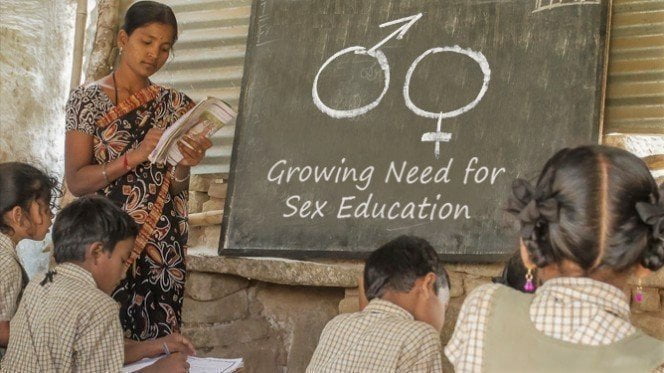“Ladki ki Nah mein bhi Haan chupi hoti hai” – This phrase has been tragically romanticised by the media. The media often portrays scenarios where persistent pursuit of a woman who initially says no eventually leads to her changing her mind and saying yes. It breeds a culture where “no” is seen as a challenge to overcome rather than a fundamental boundary to respect and sends a dangerous message to young ones that they can disregard a woman’s initial refusal and persist until they get what they want. This can result in harassment and even, sexual assault. Countless women have faced the horror of their boundaries being trampled upon, but instead of teaching sons to respect boundaries, our societal gaze remains fixated on shielding daughters behind locked doors. If we shift the narrative away from blaming victims and towards raising sons to honour consent, where they see not a veil or a skirt, but a human deserving respect, only then can we dismantle the dangerous narratives that have been insidiously seeped into the psyche of our young men.
A recent conversation among teenage boys caught my attention. One of them discussed his pursuit of a girl who kept rejecting his advances. “Ladki ki nah mein bhi haan chupi hoti hai” (A woman’s “no” hides a “yes”), he asserted confidently, echoing a sentiment often glorified in media and culture—one that dangerously romanticizes persistence in the face of a woman’s initial refusal.
This narrative, perpetuated by movies, songs, and stories, is not benign; it’s insidious and harmful. It suggests that a woman’s initial rejection is merely a coy invitation for further pursuit, ultimately leading to her changing her mind and consenting.

Real-Life Consequences in India
This problematic narrative not only trivializes consent but also sets a dangerous precedent. It breeds a culture where young people are conditioned to believe that “no” means “try harder,” rather than “stop.” This portrayal fosters a culture where boundaries can be disregarded, where persistence is celebrated over respect, and where coercion and harassment find justification under the guise of romantic pursuit.
Case Studies Highlighting the Impact
1. Nirbhaya Case (2012)
One of the most notorious cases in recent Indian history, the gang rape and murder of Jyoti Singh, widely known as Nirbhaya, shocked the nation and brought global attention to the issue of sexual violence. This brutal attack on a young woman and her male friend on a bus in Delhi highlighted not only the extreme violence women face but also the pervasive disregard for consent and boundaries. The attackers, fueled by a sense of entitlement and impunity, brutally assaulted Nirbhaya and her friend, illustrating the horrific consequences of viewing women’s autonomy as negotiable.
2. Unnao Case (2017)
In another tragic incident, a young woman from Unnao in Uttar Pradesh, accused a local politician of rape. Despite her repeated pleas and attempts to seek justice, her allegations were initially ignored and even suppressed. The case garnered national attention when she attempted to set herself on fire outside the Chief Minister’s residence, demanding justice. This case highlighted not only the vulnerability of women in seeking justice but also the systemic failures that perpetuate a culture where perpetrators feel emboldened to violate consent without consequence.

Shifting the Narrative: Teaching Respect and Consent
In cities like Delhi, where incidents of sexual violence against women persistently plague the headlines, the consequences of such narratives are stark and alarming. Reports continue to show rising numbers of sexual assaults, highlighting a pervasive disregard for consent and a culture of entitlement. Women face the harrowing reality of their boundaries being violated, their voices silenced, and their autonomy undermined.
Instead of addressing the root cause i.e misguided notions of romance and entitlement, the focus often shifts towards restricting the freedoms of women. Daughters are advised to be cautious, to dress modestly, to avoid certain places and times, perpetuating a cycle of victim-blaming and reinforcing the idea that women are responsible for preventing their own assault. This narrative fosters a sense of helplessness and self-blame when their boundaries are violated. Many victims of sexual assault hesitate to come forward, fearing they will be blamed or not taken seriously.
Educating for Change
It is imperative to shift the societal gaze away from victim-blaming and towards cultivating a culture that respects and values consent. The solution lies not in confining our daughters but in liberating our sons from the shackles of entitlement. We must educate young men to understand that consent is not negotiable, that a woman’s “no” must be respected unequivocally.
This cultural shift requires a multifaceted approach. We need comprehensive sex education that goes beyond biology to include lessons on consent, respect, and healthy relationships. We need media that portrays realistic and respectful interactions between genders, rather than perpetuating harmful stereotypes. And most importantly, we need parents, educators, and community leaders to model and reinforce positive behaviors and attitudes.

Changing deep-seated cultural norms is a daunting task, but it is not insurmountable. It begins with challenging harmful narratives wherever we encounter them, whether in our homes, schools, workplaces, or popular media. It requires holding perpetrators of sexual violence accountable while providing support and justice to survivors. And it demands that we empower women and girls to assert their boundaries confidently and without fear.
Conclusion
In conclusion, the myth of “Ladki ki nah mein bhi haan chupi hoti hai” perpetuates a dangerous narrative that undermines consent, perpetuates harassment, and contributes to a culture of violence against women. It is time to dismantle these harmful beliefs and instead foster a culture where every individual’s boundaries are respected, where consent is fundamental, and where safety and respect prevail. Only then can we pave the way for a future where every woman can live freely and fearlessly, knowing her voice will be heard, cherished, and respected.
Samreen Zahra Sayed is a student pursuing Persian Honours from Jamia Millia Islamia.
Edited by: Zakia Tasnim Ahmed






GIPHY App Key not set. Please check settings